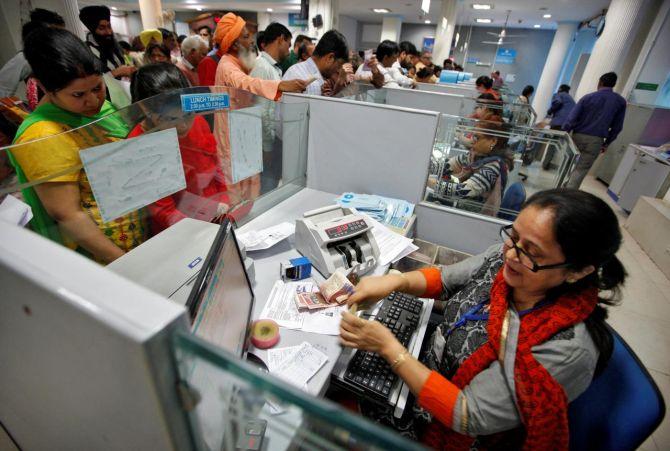It is up to the bank management to decide which application gets to interact with the CBS

The Society for Worldwide Interbank Financial Telecommunications (SWIFT) is just one of the processes that sits outside the core banking system (CBS) in banks.
According to technology experts, depending on the bank, anything between 68 and 169 processes are from third-party providers and banks don’t integrate most of them.
But some crucial applications do get integrated in the system, such as SWIFT.
For example, in private sector banks, SWIFT is part of the CBS, as is the case with State Bank of India. But, at most public sector bank, SWIFT sits outside the CBS.
And it is up to the bank management to decide which application gets to interact with the CBS.
“Giving access to CBS, and writing code, is not enough.
"You have to run it a thousand times to find bugs in the system. For a public sector bank, it often is a cumbersome exercise and therefore, most of the third-party systems are outside the CBS,” said a senior banker with a public sector bank.
Interestingly, any of these third-party applications can leak sensitive information, and banks are wholly dependent on the service providers for the integrity of the products, said experts.
SWIFT is just one of the third-party systems.
There is Murex for trade finance, Bloomberg and Reuters for capital markets functions, call centres for selling and servicing, ATM support providers, wallets for mobile transactions, etc.
For different applications, banks use interfaces of third-party solution providers, said Ashvin Parekh, senior banking consultant.
“Any good CTO (chief technology officer) will strive to integrate different systems within CBS, but it is not always possible.
"So a robust system architecture, and operation control will ensure minimisation of lapses and weaknesses,” Parekh said.
According to a banker in the private sector, frauds happen all the time at different banks, but the key lies in how quickly they are caught.
“Private sector banks are usually finicky about their systems and processes. I can’t say frauds don’t happen in our bank, but they get caught in a quarter or two.
"This is because the system keeps on generating report after report and there is no way fraud can remain undetected,” said a senior banker with a large private lender.
Another issue is the level of specialisation a private banker receives isn’t comparable with that received by a banker at a public lender.
But, that is a great handicap for the private banker as well.
“At private sector banks, if a person is trading in currency, he would keep on specialising in currency for the rest of his career.
"He won’t be able to work on bonds, and would be a novice in general credit. At public sector banks that never happens,” said a general manager at a public sector bank.
But that has started changing and bankers say there are not many takers for some critical roles at banks.
“We gave an offer to our staff to select the field they want to specialise in. Nobody volunteered for corporate credit.
"They all feared future investigations and harassments if a decision would go wrong,” said the retired chairman of a large bank.
Effective controls and risk management tools, integrated with the CBS for transparency, can eliminate the fear to a large extent as the scope for a subjective decision would minimise and a more process-driven decisions would be taken, experts said.
Photograph: Ajay Verma/Reuters










